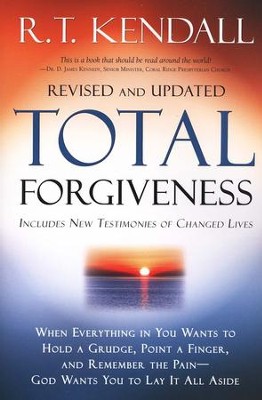RT Kendall: What the Bible Really Says About Judging Others
When you read the strong language of Matthew 7:1 (NIV), “Do not judge or you too will be judged,” it might be easy to conclude that there is never a situation in which you should make a judgment regarding another person. But this is not the case. When Jesus goes on to say, “First take the plank out of your own eye and then you will see clearly remove the speck from your brother’s eye” (v. 5). He is not denying that there will be times in which you should help to remove the “specks” from the eyes of your brothers.
Sometimes it is right to warn others about someone’s behavior. For example, the apostle John, who has so much to say about loving one another, warned about a troublemaker in the church. (See 3 John 9-10). Paul reported that Demas had forsaken him because he “loved this world” and said that Alexander the metalworker had caused him “a great deal of harm” (2 Tim. 4:10, 14). But referring to all who had deserted him. Paul advised, “May it not be held against them” (v. 16b).
It is an injustice when people who have done and can still do great harm to others remain at large. This is why a person who is raped should testify in court; it is why a person who threatens the unity of the church should be dwelt with. But basic principles must be followed in this type of judgment that allow justice to be carried out without violating total forgiveness.
Jesus’ rhetorical question “Why do you look at the speck of sawdust in your brother’s eye and pay no attention to the plank in your own eye/” (Matt. 7:3) confronts the tendency to meddle over what gets your goat. Faultfinding is out of order. The fault you see in someone else is what Jesus calls a “speck”—a little thing that annoys you. But the whole time you overlook your very serious problems, the “plank” or “beam” in your own eye.
Jesus wants you to see that you have a serious problem when you are critical and point the finger. The act of faultfinding is worse than the fault you think you see in the other person. Before Jesus provides instruction about making a correction in another person, He establishes the criterion for being qualified as a judge: You must look objectively at yourself.
So, then, is Jesus telling you that you can be qualified to judge after all? Yes, sometimes you are. If you are able to remove the plank from your own eyes, you are apparently set free to remove the speck from another’s eye.
But who would be bold enough to say that he or she has no plank? I am certainly not that bold. If I must know that there is no plank in my eye before I can offer any sort of correction to or warning about an evil person, I am out of the picture! I will never be qualified to judge.
The words of Matthew 7:5 are intended to help you in the difficult situations you confront in life and bring a balance between a godly, forgiving spirit and an attitude of judgmentalism. The principles of total forgiveness must be practiced with balance and common sense.
- Jesus wants you to be honest with Him and with yourself. Admit that you are unqualified as a judge as long as there is a plank in your eye. (And realize that we all have planks in our eyes at one time or another.)
- Jesus also wants to promote humility. It would be the height of arrogance to claim you have completely gotten rid of your plank.
- Jesus wants you to move forward, pass the offense into a lifestyle of forgiveness. Jesus also wants you to extend your help to others. But He never says you should not see what is very clearly there.
- Jesus is promoting honesty and humility, but He is also showing you what to do in certain situations in which someone needs to speak out against sin or injustice and it would be irresponsible to do so.
A closer look at Jesus’ words shows you the order in which you should place your priorities: “First, take the plank out of your own eye.” If you want to help a person in need or speak up against an injustice, your first priority must be to get things right in your own heart. This means to admit humbly and soberly your own weaknesses.
When Jesus asks you to remove the plank from your own eye, He is telling you to disqualify yourself if you get upset with the one who has a speck! You are qualified to help another person only to the extent that you truly love and care for him or her.
Follow this rule of thumb: The one who is hardest on himself or herself will probably be the gentlest with others. Those who are most aware of their own weaknesses are most likely to be able to help others. Those qualified to remove the speck of dust are impartial and will not moralize, make the person feel guilty, or be governed by any personal interest. Their only consideration will be the honor of God’s name.
 Adapted from 40 Days to Total Forgiveness by R. T. Kendall, copyright 2019, published by Charisma House. Jesus forgives you totally and unconditionally. This book will help you do the same in your life so that not only will you have peace but a greater anointing of the Holy Spirit. To order your copy, click on this link.
Adapted from 40 Days to Total Forgiveness by R. T. Kendall, copyright 2019, published by Charisma House. Jesus forgives you totally and unconditionally. This book will help you do the same in your life so that not only will you have peace but a greater anointing of the Holy Spirit. To order your copy, click on this link.
Prayer Power for the Week of May 26, 2019
Examine your own heart this week and ask the Lord to reveal any areas where you may be harboring an offense, resentment or judgment. Release forgiveness and allow Him to heal those wounded areas so you can walk in freedom and exhibit His fruit of love, joy and peace. Bless those who have hurt you and do good to those who have persecuted you. Continue to pray for the peace of Jerusalem, our allies, our nation and its leaders. Pray for revival and that righteous judgment will prevail in our land. Read 2 Chronicles 7:14, Matthew 7:1-5.
For more of Dr. R.T. Kendall’s wisdom, listen to the podcasts included with this article.














































